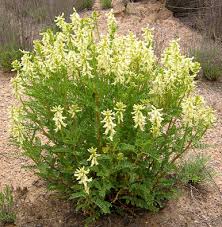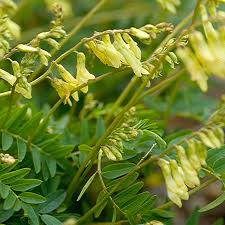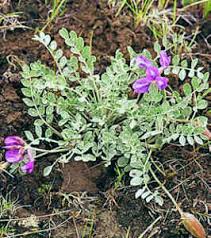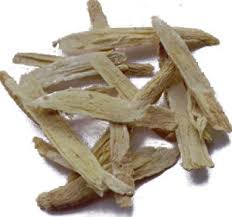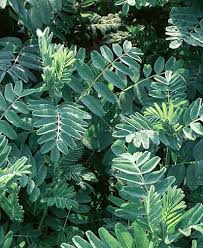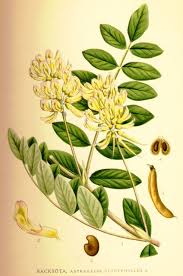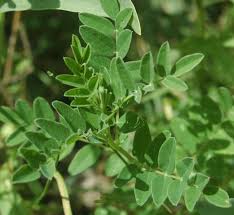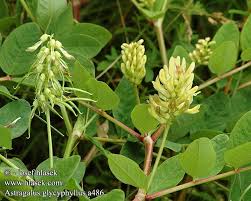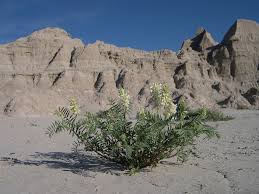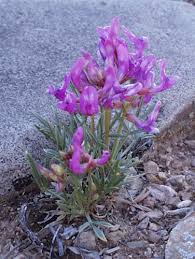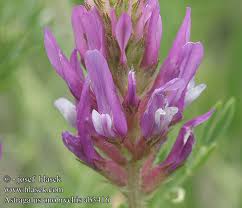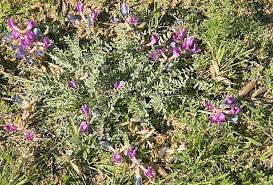Antiviral |
Early evidence shows that astragalus has antiviral effects. Additional study is needed in humans to make a firm recommendation. |
Athletic performance |
Few clinical trials have investigated the effect of astragalus alone in athletes. Further research is needed before recommendations can be made. |
Burns |
Few clinical trials have investigated astragalus in burn patients. Further research is required before recommendations can be made. |
Cancer |
A small amount of research suggests that astragalus may enhance the effectiveness of conventional treatments for cancer, such as chemotherapy and radiation. Astragalus may also lessen the degree of side effects experienced with cancer treatments and improve quality of life. Better studies are needed in this area before firm conclusions can be reached. |
Chemotherapy adjunct |
Data from clinical trials are suggestive that astragalus alone and in combination with other herbs may help with the toxic effects of cancer chemotherapy. Further research is needed. |
Coronary artery disease |
Clinical data are inconclusive. Further research is needed before a recommendation can be made. |
Diabetes |
More research is required in this field before recommendations can be made. |
Heart failure |
Early evidence suggests astragalus may offer symptomatic improvement for chronic heart failure. Recommendations cannot be made until well-designed clinical trials have been conducted. |
Hepatitis |
Antihepatitis effects have been reported in early studies. Additional study is needed in this area. |
Herpes |
Antiherpes effects have been reported in early studies. Additional study is needed in this area. |
HIV |
Antiviral effects have been reported in early studies. Additional studies are warranted. |
Immune system stimulant |
Several small studies report that astragalus may stimulate and improve immune system function in conditions such as the common cold, blood disorders, cancer and HIV/AIDS. Further research is needed in this area. |
Cardiovascular disease |
Several small studies suggest astragalus may help improve heart function in individuals with chest pain, history of heart attack or congestive heart failure. However, larger studies are needed to determine the exact benefit and safety of astragalus for these conditions. |
Myocarditis and endocarditis (inflammation and infection of the heart) |
Several studies suggest that astragalus may improve symptoms of viral myocarditis. However, these studies are small and poorly designed. Larger, better-quality studies are needed to provide clear answers. |
Liver protection |
The clinical data suggest that astragalus may be effective in cirrhosis. Further research is required before recommendations can be made. |
Mental performance |
One clinical trial suggests that miltiorrhiza may aid in mental performance of children with low IQ. Further, well-designed clinical trials are required before recommendations can be made. |
Kidney disease |
The clinical data suggest that astragalus may be effective in renal disease but do not provide convincing evidence to support this claim, due to the overall poor quality of the published clinical studies. |
Smoking cessation |
Astragalus has been used traditionally to aid in smoking cessation. Well-designed clinical trials are required before recommendations can be made |
Tuberculosis |
One clinical trial suggests the potential for benefit of astragalus in patients with tuberculosis. Further well-designed clinical trials are required before recommendations can be made. |
Upper respiratory infection |
Astragalus is often used in Chinese medicine as a part of herbal mixtures to prevent or treat upper respiratory tract infections. Due to a lack of well-designed research, no firm conclusions can be drawn. |
| Acute cerebral infarction Adaptogen Adrenal insufficiency Aging AIDS Allergies Alzheimer's disease Anemia Angina Ankylosing spondylitis Anorexia Anticoagulant (blood thinner) Antifungal Anti-inflammatory Antimicrobial Antioxidant Asthma Astringent Blood thinner Blood vessel disorders Bone loss Bone marrow loss Bronchitis Capillary formation improvement Cardiac hypertrophy Cardiac ischemia Cervicitis Chemotherapy side effects "Chi deficiency" (fatigue, weakness, loss of appetite) Chronic fatigue syndrome Cleanser Colitis Cytomegalovirus Dementia Demulcent Denture adhesive Dermatitis Diabetic foot ulcers Diabetic nephropathy Diabetic neuropathy Diarrhea Digestion Diuresis (urine production) Ear infection Edema Expectorant Fatigue Fever Gangrene Gastrointestinal disorders Genetic damage Genital herpes Graft-versus-host disease Hearing protection Heart attack Hemorrhage (bleeding) Hemorrhoids High blood pressure | High cholesterol Hyperthyroidism Infantile respiratory infection Infections Inflammation Insomnia Irregular menstruation Joint pain Lack of menstrual period Laxative Leprosy Leukemia Liver disease Liver fibrosis Loss of appetite Low blood platelets Lung cancer Male fertility (sperm motility) Memory Menstrual disorders Metabolic disorders Minimal brain dysfunction Multiple sclerosis Myalgia Myasthenia gravis Myeloid graffi tumor Nephritis Neuroprotective Night sweats Pain Palpitations Postpartum fever Postpartum urine retention Preterm labor Prostatitis Psoriasis Pulmonary fibrosis Radioprotection Rectal prolapse Renal fibrosis Rotavirus enterocolitis Shortness of breath Sperm motility Stamina Stomach disorders Stress Stroke Sweating Systemic lupus erythematosus Thrombocytopenia Tissue oxygenation Tonic Tonsillitis Uterine bleeding Uterine prolapse Vascular endothelial cell proliferation Weakness Weight loss Wound healing |
- General: Up to 1.3 percent has been used topically in lotions, denture creams, toothpastes and cosmetics.
- Herpes simplex keratitis: A dose of 0.5 milliliters astragalus (1:1 extract) has been used for three weeks.
- Wound healing: A 10 percent astragalus ointment has been applied to wounds.
- Natural Standard: An organization that produces scientifically based reviews of complementary and alternative medicine (CAM) topics
- National Center for Complementary and Alternative Medicine (NCCAM): A division of the U.S. Department of Health & Human Services dedicated to research
- Block KI, Mead MN. Immune system effects of Echinacea, ginseng and astragalus: a review. Integr Cancer Ther 2003; Sep, 2(3):247-267.
- Chen KT, Su CH, Hsin LH, et al. Reducing fatigue of athletes following oral administration of huangqi jianzhong tang. Acta Pharmacol Sin 2002;Aug, 23(8):757-761.
- Firenzuoli F, Gori L, Di Simone L, et al. Important bias in the Astragalus meta-analysis. J Clin Oncol 2006;Jul 1, 24(19):3215-3216. Author reply, 3216-3217.
- Huang CL, Lu YP. Effect of astragalus injection on insulin resistance in auxiliary treating patients with diabetes mellitus type 2. Zhongguo Zhong Xi Yi Jie He Za Zhi 2003;Oct, 23(10):779-780.
- Kobayashi H, Mizuno N, Teramae H, et al. Diet and Japanese herbal medicine for recalcitrant atopic dermatitis: efficacy and safety. Drugs Exp Clin Res 2004;30(5-6):197-202.
- Kusum M, Klinbuayaem V, Bunjob M, Sangkitporn S. Preliminary efficacy and safety of oral suspension SH, combination of five chinese medicinal herbs, in people living with HIV/AIDS: the phase I/II study. J Med Assoc Thai 2004;87(9):1065-1070.
- Lee HJ, Lee JH. Effects of medicinal herb tea on the smoking cessation and reducing smoking withdrawal symptoms. Am J Chin Med 2005;33(1):127-138.
- Liu JP, Yang M, Du XM. Herbal medicines for viral myocarditis. Cochrane Database Syst Rev 2004;(3):CD003711.
- Mao SP, Cheng KL, Zhou YF. Modulatory effect of Astragalus membranaceus on Th1/Th2 cytokine in patients with herpes simplex keratitis. Zhongguo Zhong Xi Yi Jie He Za Zhi 2004;Feb, 24(2):121-123.
- Natural Standard Research Collaboration, Chief Editors: Ulbricht C, Basch E, Natural Standard Herb and Supplement Reference. Evidence-Based Clinical Reviews, USA. Elsevier/Mosby, 2005.
- Sun Y, Yang J. Experimental study of the effect of Astragalus membranaceus against herpes simplex virus type 1. Di Yi Jun Yi Da Xue Xue Bao 2004;Jan, 24(1):57-58.
- Taixiang W, Munro AJ, Guanjian, L. Chinese medical herbs for chemotherapy side effects in colorectal cancer patients. Cochrane Database Syst Rev 2005;(1):CD004540.
- Wang F. Twenty-eight cases of diabetic foot ulcer and gangrene treated with the Chinese herbal medicine combined with injection of ahylsantinfarctase. J Tradit Chin Med. 2002;Mar, 22(1):3-4.
- Wu J, Wang YX, Su WL, et al. Effect of astragalus injection on serious abdominal traumatic patients' cellular immunity. Chin J Integr Med 2006;Mar, 12(1):29-31.
- Yin X, Zhang S, Kong Y, et al. Observation on efficiency of jiangtang capsule in treating diabetes mellitus type 2 with hyperlipidemia. Chin J Integ Trad West Med 2001;7(3):214-216.
- Zhang JG, Yang N, He H, et al. Effect of astragalus injection on plasma levels of apoptosis-related factors in aged patients with chronic heart failure. Chin J Integr Med 2005;Sep, 11(3):187-190.
- Zhou Y, Huang Z, Huang T, et al. Clinical study of Shengxue mixture in treating aplastic anemia. Chin J Integ Trad West 2001;7(3):186-189.

Fale com o Ministério
disque saúde 0800 61 1997
Ministério da Saúde - Esplanada dos Ministérios - Bloco G - Brasilia / DF
CEP: 70058-900 Sphere: Related Content
![Validate my Atom 1.0 feed [Valid Atom 1.0]](valid-atom.png)























































